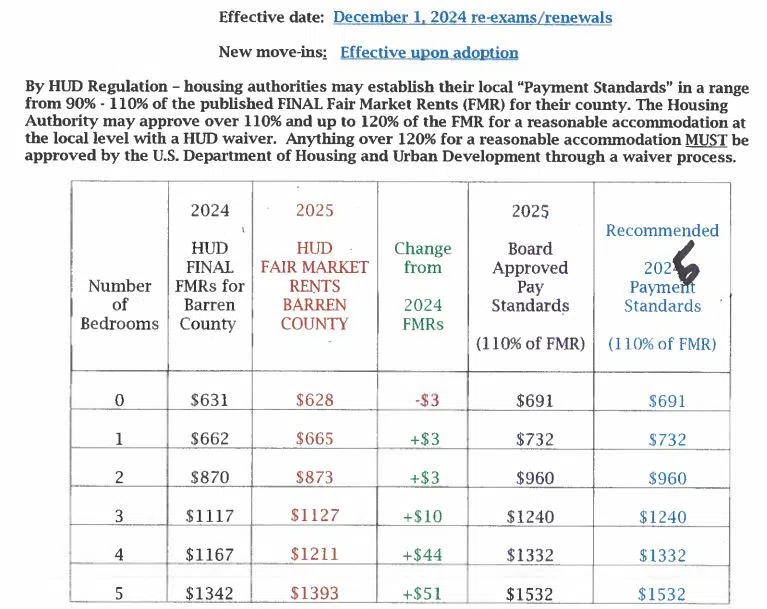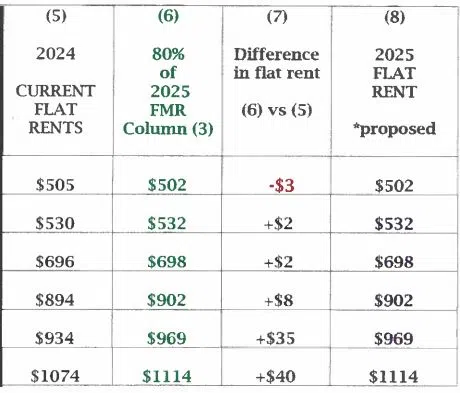
On Sept 19 the commissioners of the Housing Authority of Glasgow met in their conference room of Bunche Avenue. Michael Crimmins/Glasgow News 1.
By MICHAEL CRIMMINS
Glasgow News 1
The sun had risen over Glasgow. The town had resumed its light buzz of activity as the commissioners of the Housing of Glasgow convened their monthly meeting.
On the commissioners’ agenda were numerous items up for discussion and approval including the approval of the Fair Market rent payment standards, the approval of the proposed housing authority’s flat rents and Sheri Lee, executive operations director, provided the commissioners with the newest housing authority legislative information.
During the discussion the commissioners gave their attention to the Fair Market Rents set by the United States Department of Housing and Urban Development and Glasgow’s Housing Authority’s recommendation. According to the office of Policy Development and Research Fair Market Rents “are used to determine payment standard amounts for the Housing Choice Voucher program” and individual housing authorities can then set payment standards based on those figures, which, essentially, sets the “maximum assistance” the Glasgow Housing Authority will pay landlords.
“If somebody finds a two-bedroom [apartment] for $1,000 then all we will be able to help with is $960 and that family will have to pay everything else,” Lee said.

Those Fair Market Rents are for housing vouchers but Barren Countians utilizing public housing have the option at their annual evaluation to either take an income-based rent or a flat rent, which is required to be no less than 80 percent of the Fair Market rate for Barren County set by HUD. According to Lee many residents opt for the flat rents and so that was the next item seeking the commissioners’ approval.
At Lee’s recommendation the commissioners approved the flat rate at 80 percent of the area’s FMRs.

Though not an action item, Lee gave those present a legislative update regarding things like regulations and new housing authority monetary policies. Perhaps the most notable change Lee mentioned was the “Build America Buy America” policy housing authorities now need to comply with. According to the White House, the act “requires that all of the iron, steel, manufactured products, and construction materials used in infrastructure projects are produced in the United States.”
As Lee explained further this act, which was passed in 2021, requires that all government projects over $250,000 be constructed using only American-made products — though exceptions to this can be given, in this case, by HUD.
“Any project we do that’s over $250,000 we’ve got to prove that the products that we purchase are built in America and bought in America,”Lee said. “So if we were still building those eight units on Moran [Street] right now…everything we purchased for that we would have to prove everything was built here.”
Lee said this requirement would likely “cause delays” in construction as not everything needed is necessarily produced in America nd those that are will be more in demand and thus a longer waiting list.
The next next board meeting is scheduled for Oct. 17.
Comments